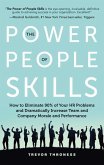Culture plays a significant role in shaping HR practices and has a direct influence on employees within an organization. The culture of a company refers to its shared values, beliefs, attitudes, and behaviors that are commonly accepted and practiced by its members. HR practices, on the other hand, encompass various policies, procedures, and strategies implemented by the human resources department to manage and support employees throughout their employment lifecycle.When culture and HR practices align effectively, they create a cohesive and productive work environment that positively impacts employees in several ways. Here are some key ways in which culture shapes HR practices and influences employees:1. Recruitment and Selection: Culture influences the recruitment and selection process by defining the desired qualities, skills, and attributes that are sought in potential employees. HR practices are designed to identify candidates who align with the organization's culture, ensuring a good fit and enhancing employee engagement and satisfaction.2. Onboarding and Orientation: The culture of an organization sets the tone for onboarding and orientation practices. HR practices are developed to introduce new employees to the company's culture, values, and norms. A well-designed onboarding program that reflects the organizational culture helps new hires feel welcomed, understand their role, and quickly adapt to their new work environment.3. Performance Management: Culture shapes the way performance is measured, evaluated, and rewarded within an organization. HR practices, such as performance appraisals and recognition programs, are aligned with the cultural values and expectations of the company. A culture that promotes collaboration, innovation, and continuous learning will have performance management practices that emphasize these aspects, motivating employees to excel.4. Employee Engagement and Satisfaction: Culture plays a crucial role in employee engagement and satisfaction. HR practices are tailored to create a positive work environment that aligns with the cultural expectations of employees. This may include initiatives such as flexible work arrangements, work-life balance programs, employee recognition, and a supportive leadership style. When employees feel a sense of belonging and connection to the organizational culture, their engagement and satisfaction levels are typically higher.6. Communication and Collaboration: Culture influences how communication and collaboration are encouraged and facilitated within an organization. HR practices focus on fostering open and transparent communication channels, promoting teamwork, and creating a culture of inclusivity and respect. Effective communication and collaboration practices enhance employee productivity, innovation, and overall job satisfaction.In summary, culture significantly shapes HR practices, which in turn have a direct impact on employees. When an organization's culture and HR practices align harmoniously, they create an environment where employees feel valued, motivated, and engaged, ultimately leading to improved performance, retention, and overall organizational success.








